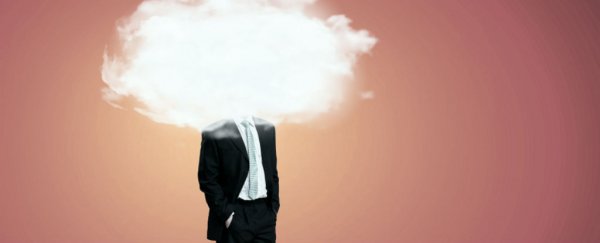It's no secret that we're covered in microscopic organisms, both inside and out. They're setting up shop everywhere, from inside our mouths and the tips of our eyelashes, to under our skin and in our digestive systems.
And I'm sorry to tell you this, but whatever you do - whether it's waving to someone, scratching your head, or just sitting quietly in a chair - you'll be surrounded by a 'cloud' of microbes that are being shed from your body at a constant rate, 24 hours a day. And because everyone's microbe population - or biome - is unique, so is your disgusting microbial cloud, and scientists now think the tiny creatures you leave behind can be used to identify you.
A new study led by James Meadow, formerly of the University of Oregon in the US, concludes that it's demonstrated for the first time that "individuals release their own personalised microbial cloud", and this cloud is made up of three main sources - dust, particles from our clothing, and particles from ourselves.
As Nick Stockton puts it so eloquently at Wired:
"When you pick your nose, burp your ABCs, or signal your compliments to the chef, gut microbes join the cloud. And, sorry if you were eating, but your farticles are also a medium for all the gut microbes living in you. Quoting a colleague, Meadow says, 'The world is covered in a fine patina of faeces.'"
Meadow and his colleagues tested the 'uniqueness' of human microbial clouds by asking three volunteers to sit alone in a sanitised chamber filled with filtered air. They were each asked to put on an identical brand-new outfit so their clothing emissions would be the same, and sit in a disinfected chair and use a sterilised laptop to communicate to the researchers outside. For the first session they had to remain in the chamber for 4 hours and then after a break, returned for another 2 hours.
As each volunteer unwittingly shed their various microbes, they would be filtered out of the chamber and genetically sequenced so the researchers could figure out which types of bacteria each person contained. The most common bacteria they found were Streptococcus from the mouth, Corynebacterium and Propionibacterium from the skin.
The team then set up another experiment to see if they could use these microbe clouds to identify their volunteers. Eight new volunteers were asked to sit in the sterilised chamber for two 90-minute sessions, and their discarded microbes were analysed as they were in the first experiment.
"We expected that we would be able to detect the human microbiome in the air around a person, but we were surprised to find that we could identify most of the occupants just by sampling their microbial cloud," Meadow told CBS News. The results were published in the journal PeerJ.
When it comes to using microbial clouds to identify people in the future - such as criminals who have fled the scene but left their discarded microbes behind - things won't be so easy. In theory, police could identify specific microbes from places a person has been, or things they've eaten, but unless the crime scene happens to be anything other than a sterilised chamber, there'll be plenty of other things discarding their own microbes, such as other people, animals, and dusty objects.
Perhaps a more promising application is identifying the spread of infections and disease in hospitals, as Stockton explains:
"That knowledge will help shape microbiome cloud research in fields like contagious disease and forensics. In hospitals, nobody really knows how germs spread. Since leaving Oregon State University, Meadow has joined a biotech company in San Francisco that wants to use the understanding of microbial clouds to help hospitals prevent things like MRSA outbreaks."
So I guess the good news for criminals is that you're free to fart with abandon while breaking the law and the cops will be none the wiser. The bad news for the rest of us is that farticles exist.
